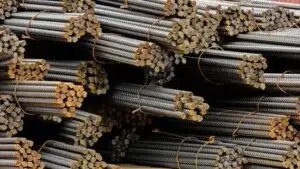London, England — In an extraordinary move to protect the nation’s critical infrastructure, the British government has intervened to assume control of British Steel, the country’s last remaining producer of virgin steel, averting a looming shutdown that threatened thousands of jobs and a vital segment of the UK economy.
The emergency action, finalized during a rare weekend sitting of Parliament, grants the state immediate oversight of the Scunthorpe facility, located in northern England. Prime Minister Keir Starmer described the intervention as a “national duty,” emphasizing that losing the capability to produce steel from raw materials would have posed a severe threat to Britain’s economic sovereignty.
“Today, we have made a decisive choice to preserve Britain’s steelmaking legacy,” Starmer declared after the emergency legislation swiftly passed through both chambers of Parliament without resistance.
The Scunthorpe plant, owned since 2020 by Chinese conglomerate Jingye Group, faced imminent closure after years of mounting financial losses — reportedly close to £700,000 daily. Jingye, citing unsustainable operating costs, had proposed replacing domestic steel production with imports from China, a move the UK government deemed unacceptable for national security and economic resilience.
Tensions escalated dramatically on Saturday morning as workers at the Scunthorpe site reportedly blocked Jingye executives from accessing key operational areas. Police were called to maintain order, although no arrests were made.
Emergency Powers Activated
Under the new emergency law, ministers now have the authority to manage British Steel’s operations directly and impose criminal sanctions on any executives who fail to comply with orders to keep the blast furnaces operational. Although full nationalisation remains a strong possibility, ministers clarified that ownership has not yet formally changed hands.
“This is about safeguarding Britain’s future — our construction, our transport, and our defense industries all depend on a domestic steel supply chain,” said Jonathan Reynolds, Secretary of State for Business and Trade. “State ownership remains an option if needed, but immediate action was necessary to prevent catastrophic collapse.”
Reynolds also revealed that negotiations with Jingye broke down after the company demanded hundreds of millions of pounds without conditions, raising concerns that any financial concessions could be funneled out of the UK.
Historical Echoes
The Scunthorpe site is Britain’s final bastion of virgin steel production after the closure of Tata Steel’s blast furnaces at Port Talbot last year. It carries a legacy dating back to the Industrial Revolution and the Labour government’s sweeping nationalisation efforts in 1967, when nearly 270,000 workers were employed in steel manufacturing across the UK.
In recent years, global steel markets have been battered by cheap imports from Asia, with British and European producers struggling to remain competitive. British Steel has also cited recent US tariffs under the Trump administration as an additional headwind.
Looking Ahead
The government’s unprecedented intervention marks a defining moment in Britain’s industrial policy. While immediate stabilization of British Steel is the priority, longer-term decisions on ownership and restructuring are still under consideration.
For now, the furnaces will stay lit, and the workers will remain at their posts — a rare victory for British industry in an era of globalization, uncertainty, and fierce international competition.

